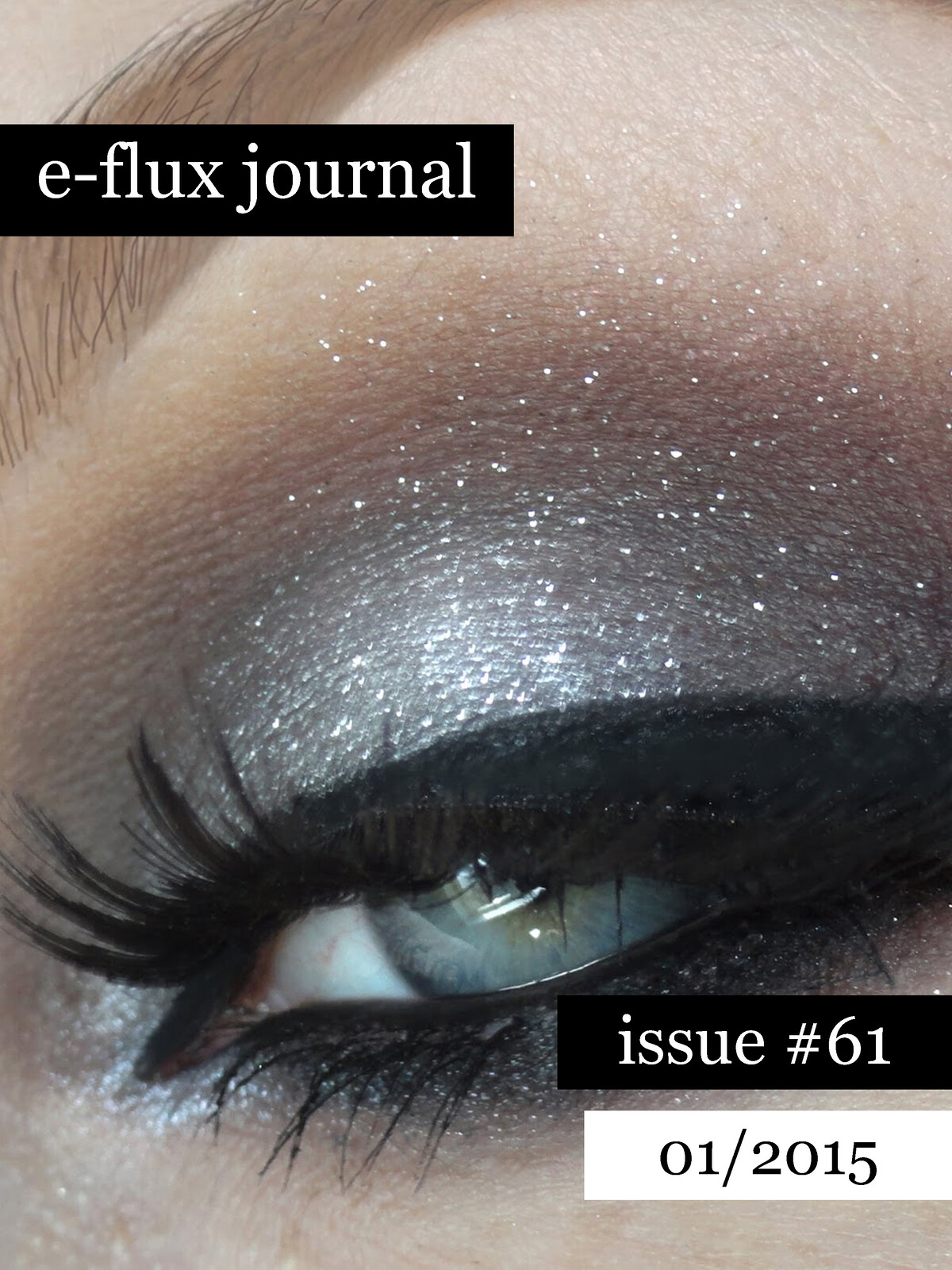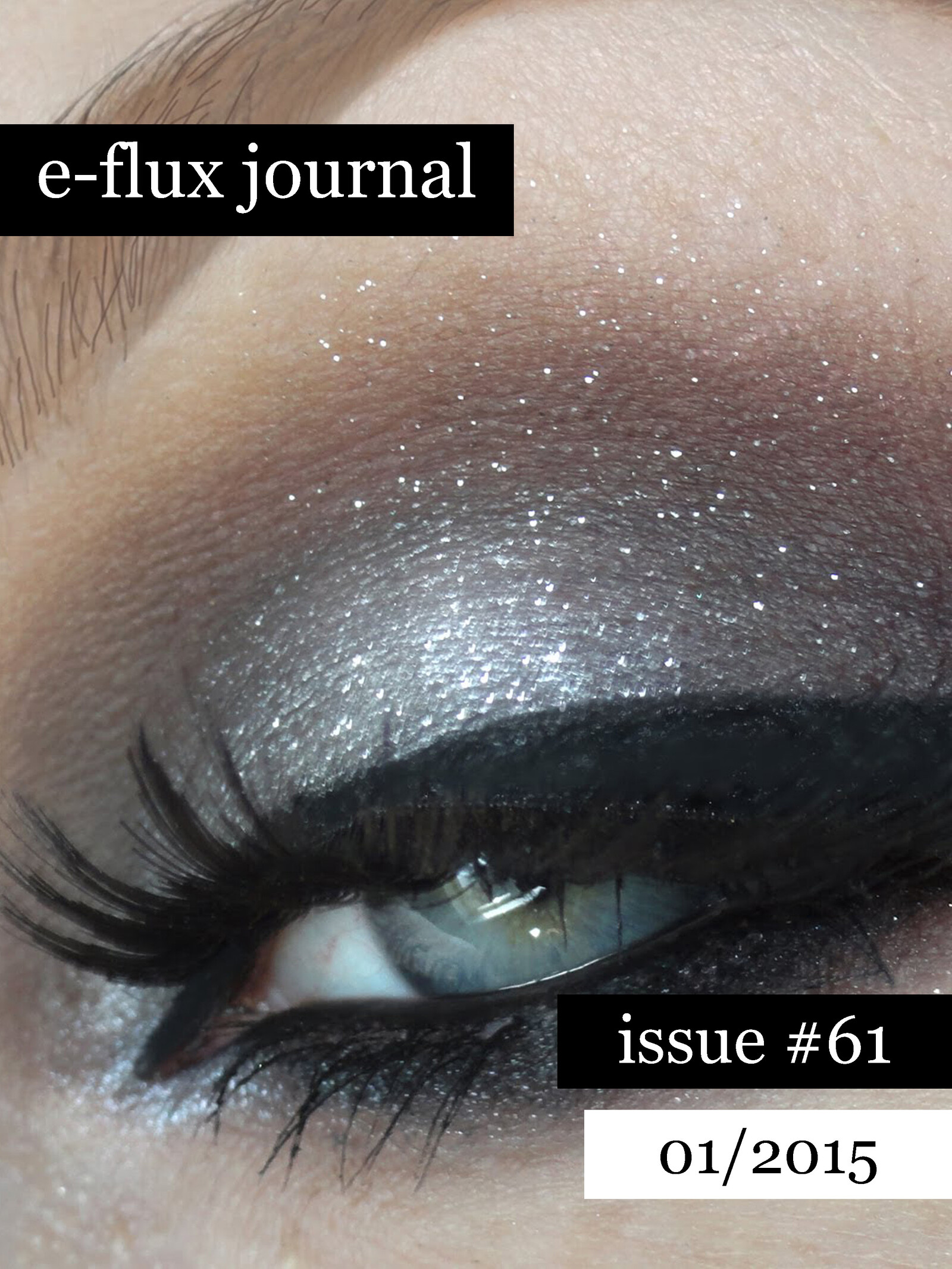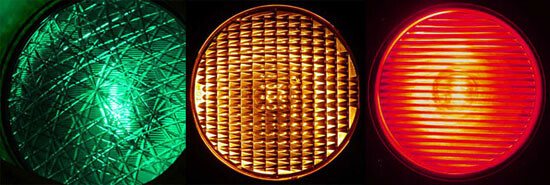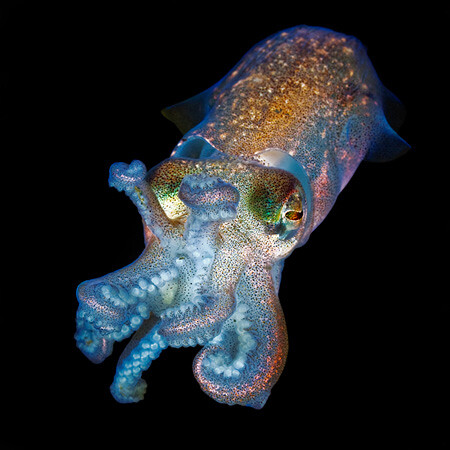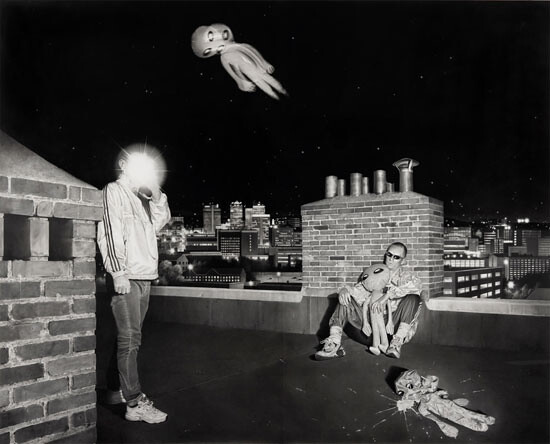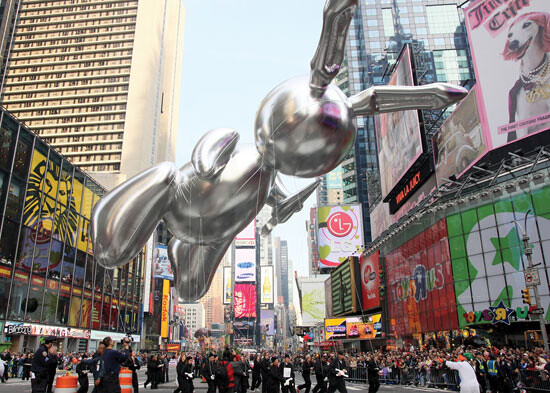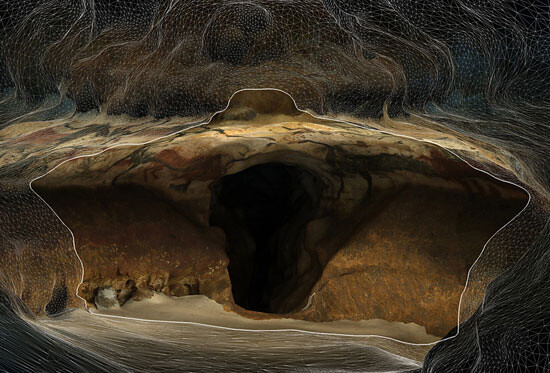1.
In Two Days, One Night , Jean Pierre and Luc Dardenne’s 2014 installment of their series of portrayals of contemporary psychosocial landscapes of precarity, the protagonist, a woman named Sandra (Marion Cotillard), is coming out of a period of clinical depression and is now faced with redundancy. Struggling to return to her job at a small solar panel factory, Sandra roams—by car, by bus, and by foot, often hesitantly, always tired—the urban and exurban spaces in and around Seraing…
Issue #61
“Politics of Shine”
January 2015
With:
Tom Holert, Julieta Aranda, Brian Kuan Wood, Anton Vidokle, Tom Holert, Natascha Sadr Haghighian, Tavi Meraud, Timotheus Vermeulen, Adrian Rifkin, and Sven Lütticken
Shine and shininess are characteristic of surface effects, of glamour and spectacle, of bling-bling contingency, of ephemeral novelty, value added, and disposable fascination. Shine is what seizes upon affect as its primary carrier to mobilize attention. Shine could be the paradoxically material base of an optical economy typically (mis)understood as being purely cognitive or immaterial. Even at an art fair or Hollywood gala, surface effects are widely deployed while being categorically…
View List
View Grid
8 Essays
January 2015
I counted.
Twenty-eight seconds green
Two seconds yellow
Thirty-seven seconds red
One second yellow
And again
Twenty-eight seconds green
Backlight
The traffic light turned one hundred this summer, on August 5. I learn this from the “Innovation” section of the Siemens website. Apparently, the first electric traffic light was put in operation in Cleveland, Ohio. Its control signals were operated by a police officer who sat in a little shack at the intersection and rang…
There are more pressing matters than this potentially touchy matter of pressing close. The following story isn’t so much an apology for intimacy or some kind of championing of it, but rather the modest suggestion that intimacy organizes our experience of space and especially of surfaces. As such, it is in fact not so trivial or delicate after all. These are notes towards a reconceptualization of intimacy in light of new ways in which we can think of the surface.
1. Iridescence…
Just because it’s fake doesn’t mean I don’t feel it.
—Girls, Season 3, Episode 3
Fredric Jameson once noted that superficiality was the “supreme formal feature” of late twentieth century culture. 1 Whether it was in the philosophy of Foucault or historicist architecture, in the photography of Warhol or the nostalgia film, he suggested, an “exhilaration of … surfaces” had cut short the “hermeneutic gesture,” the reading of a physical or dramatic expression as a “clue or a…
It is. It’s a grimly Adornian thought about now, about kitsch, the threat of the seductive, the wicked witch or some other smooth-talking phantom of consumerism’s triumph, but yes, I do think this. 1 That the death of the matte screen for computers, TVs, tablets, or telephones is a terrible disaster. It’s a vain and obscuring gleam, the gleam of a current vanity, but nothing so grand as a vanity of vanities, rather the vanity of not owning up to short sight or a slight deafness, of not…
Swathed in shining metal to conceal corrosion & appear to elude entropy on the whole.
—Lawrence Weiner
One of the virtues of Tom Holert’s long-running investigation into the concepts of glamour and shine is that it counters the increasing return to an ahistorical ontology among a certain subset of professional philosophers. In opposing the “Kantian reduction” of philosophy from ontology to epistemology, these speculative realists conveniently marginalize whole strands of…
Even if we are to resign ourselves to thinking of artworks as produced by structural or economic conditions, we end up bumping into a larger problem of having a hard time locating the way structural or economic conditions actually work today. Maybe we are still inside the long historical tail of institutional critique trying to identify coercive structures when actually most of the institutions have already been defunded. Or maybe it’s a new formal regime altogether, amplifying Lippard’s…
